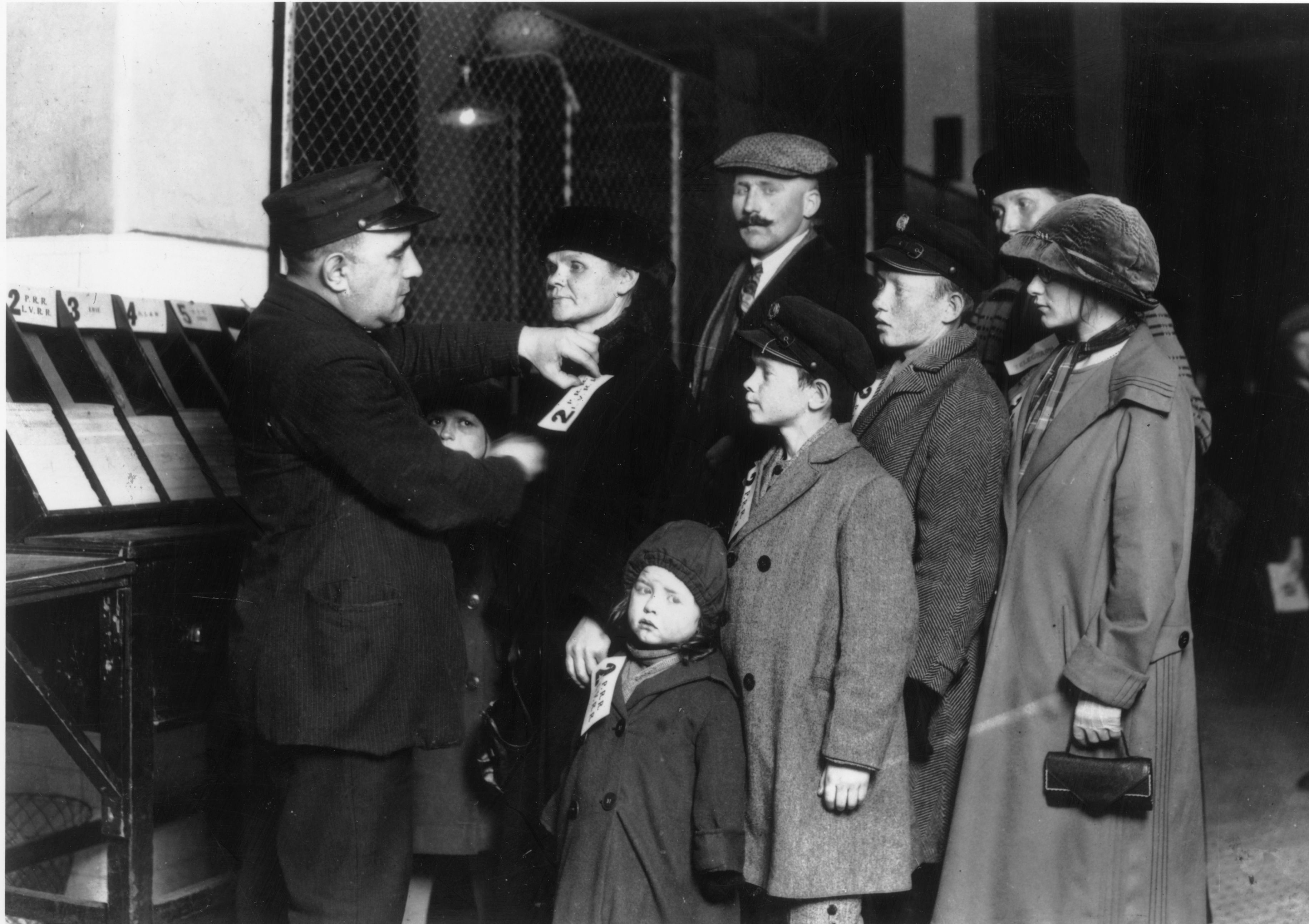Your family name did not come from a mistake at Ellis Island
So how did Jensen become Johnson, Koenigsberger become Kingsley, and Mlodzianowski become Murphy?


A free daily email with the biggest news stories of the day – and the best features from TheWeek.com
You are now subscribed
Your newsletter sign-up was successful
When my great-grandfather Yuroslav Hieronymous O'Kagan vaan de Schulevitzberg arrived at Ellis Island in 1909 he didn't speak much English. He was 17 and hoping to make his fortune quickly and bring the rest of his family over from the old country. He knew he would be asked a number of questions at arrival about his occupation, his health status, his living arrangements, etc., and he was prepared. As he approached the immigration officer, the first American he had ever met, the answers tumbled out in a nervous jumble, "Work factory! No coff-coff! Tooths very good! Go to Chicago! Buy house! Big house!"
The officer shook his head, laughed, and asked, "Name?"
Thinking the officer was mocking his presumptuous housing plan, he replied, "OK. OK … rent." And that's how we became the Okrent family.
The Week
Escape your echo chamber. Get the facts behind the news, plus analysis from multiple perspectives.

Sign up for The Week's Free Newsletters
From our morning news briefing to a weekly Good News Newsletter, get the best of The Week delivered directly to your inbox.
From our morning news briefing to a weekly Good News Newsletter, get the best of The Week delivered directly to your inbox.
This story is not true. Most stories of this kind are not true. Because, as Philip Sutton of the New York Public Library explains, the inspectors at Ellis Island "did not create records of immigration; rather they checked the names of the people moving through Ellis Island against those recorded in the ship's passenger list, or manifest." No names were changed at Ellis Island, because no names were taken at Ellis Island.
It is also highly unlikely that such comically inept communication would have ever taken place at Ellis Island. According to this article at U.S. Citizenship and Immigration Services, the Ellis Island immigrant inspectors all "spoke an average of three languages. They were assigned to inspect immigrant groups based on the languages they spoke. If the inspector could not communicate, Ellis Island employed a full-time army of interpreters and would call in temporary interpreters under contract to translate for immigrants speaking the most obscure tongues."
So how did Jensen become Johnson, Koenigsberger become Kingsley, Mlodzianowski become Murphy, and so on? In some cases, names were entered incorrectly on the passenger list when travelers bought their tickets abroad. For example, a Portuguese named Teixeira, leaving from a French port, might have been entered as Techera. These types of mistakes were in fact sometimes corrected by Ellis Island inspectors (by lightly marking corrections, at the request of the passenger, above the name written in the manifest).
In other cases, immigrants were given alternate names by neighbors, bosses, co-workers, or teachers who couldn't pronounce the originals. Those alternate names were then adopted by the immigrants when they submitted their applications for naturalization. Though the idea for the new name might have come from someone else, the name did not become official unless the immigrant chose to make it official when becoming a citizen.
A free daily email with the biggest news stories of the day – and the best features from TheWeek.com
The name you used when you applied for your naturalization papers did not have to match the manifest at Ellis Island. Names were adjusted, sometimes slightly, in order to fit new surroundings, and sometimes drastically, in order to fit new identities. My name, which was Okręt in the old country, was changed to Okrent to get as close as possible to the intended pronunciation (the ę is a nasalized e in Polish). Official name changes did not come about through haphazard errors, but because immigrants deliberately chose them. Chalk it up to the urge to assimilate, the drive for self-reinvention, or the excitement of using a freedom they hadn't had before, but don't blame it on the hardworking, multilingual clerks at Ellis Island.
Arika Okrent is editor-at-large at TheWeek.com and a frequent contributor to Mental Floss. She is the author of In the Land of Invented Languages, a history of the attempt to build a better language. She holds a doctorate in linguistics and a first-level certification in Klingon. Follow her on Twitter.
-
 How the FCC’s ‘equal time’ rule works
How the FCC’s ‘equal time’ rule worksIn the Spotlight The law is at the heart of the Colbert-CBS conflict
-
 What is the endgame in the DHS shutdown?
What is the endgame in the DHS shutdown?Today’s Big Question Democrats want to rein in ICE’s immigration crackdown
-
 ‘Poor time management isn’t just an inconvenience’
‘Poor time management isn’t just an inconvenience’Instant Opinion Opinion, comment and editorials of the day
